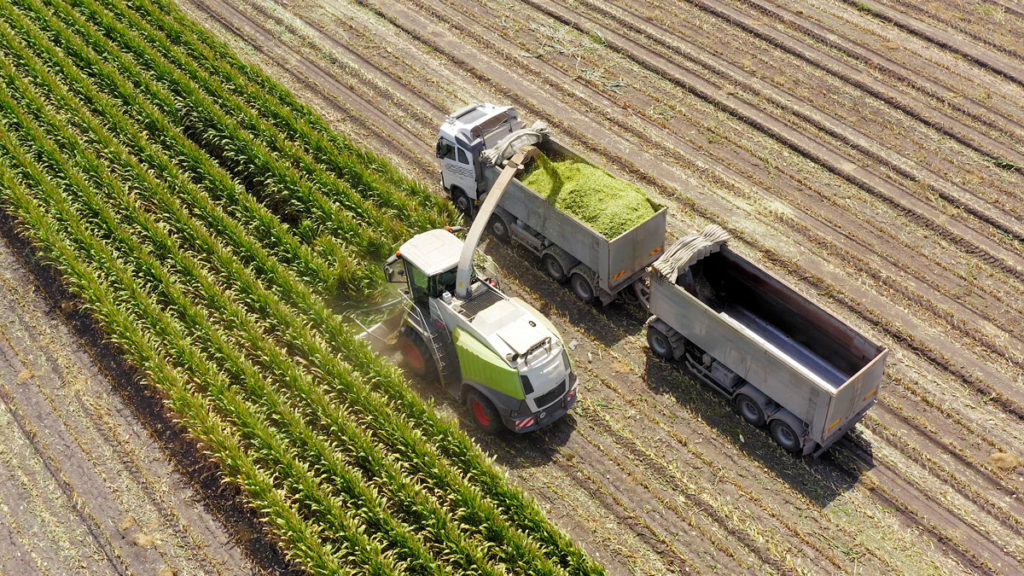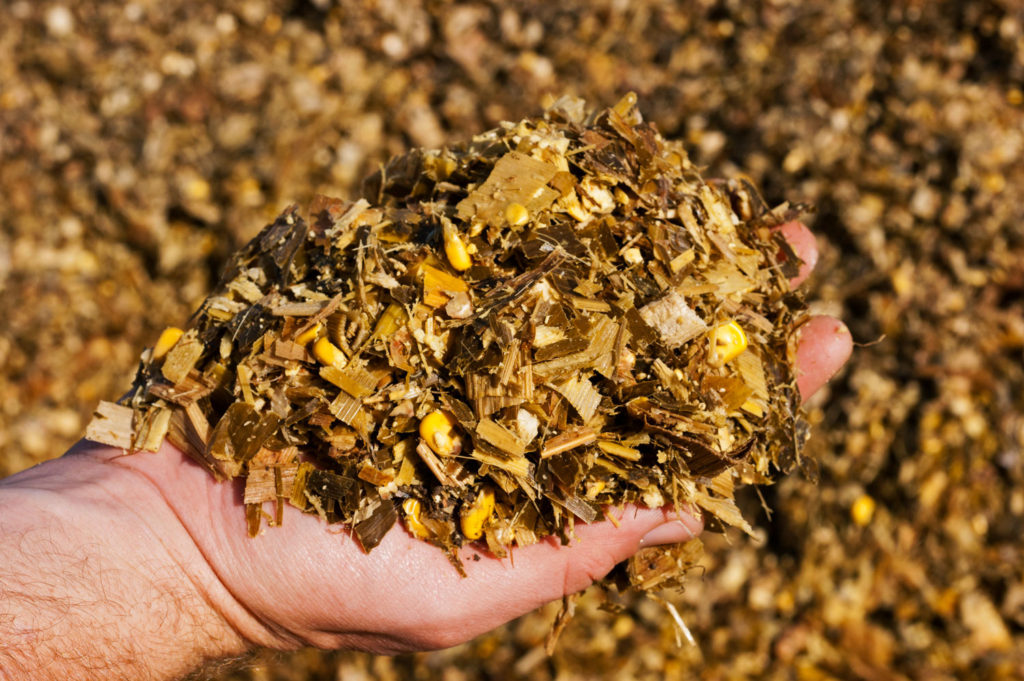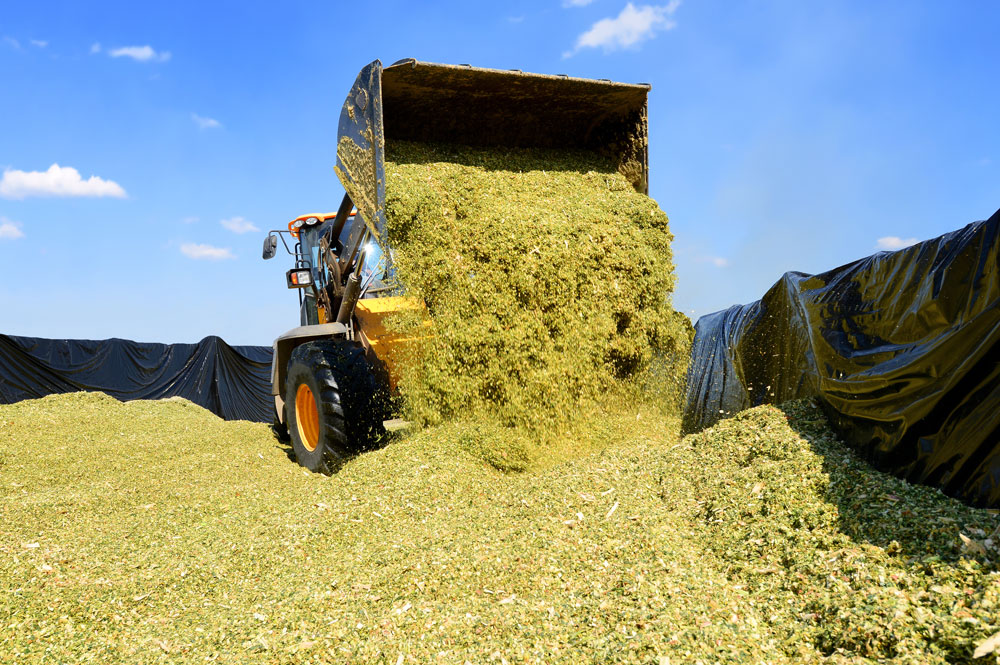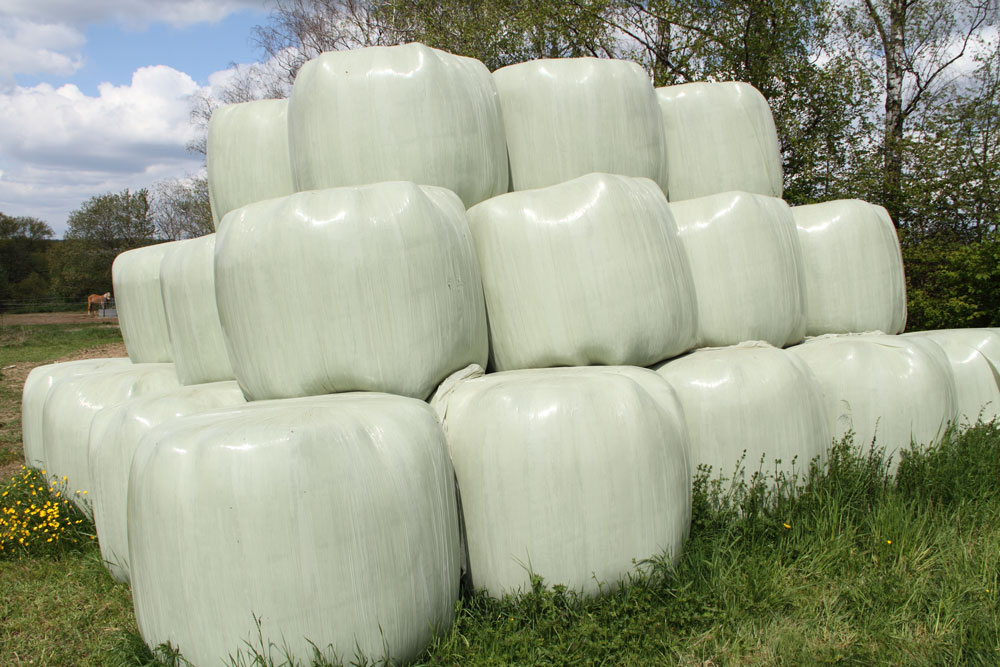Silage: Need of the hour for successful dairy farming

Maize is one of the most valuable forages. Maize is includes both starchy material and fiber in variable proportion, depending on genetics, stage of maturity and growing conditions. Maize silage is an ideal energy-rich feed for ruminants. Maize silage has become the main forage fed to ruminant in many parts of the world. High starch content, a high protein efficiency ratio and a relatively high content of digestible energy and nutrients its main advantages. Maize silage has ranges of digestibility from 62% to 76% and maize silage intake greatly depends on crop quality and silage preservation.

- Provision of nutritive fodder to feed during shortage days
- Prevention of spoilage of excess fodder or avoid to over mature the fodder in the field
- To preserve the nutrition value of green fodder at right stage when it is at its max.
- More fodder storage in less space
- To overcome labor problem
- To overcome fodder cutting problem in non-favorable weather conditions (Rain, Storm etc.)
- Harvest and chop the Maize at stage when it is in best energy level and on his peak production. Fodder should be at 32% to 35% dry matter.
- Half milk line stage or dent stage is the best stage to harvest maize for silage
- Normally on farm silage is made in bunkers. Pit or bunker should be on a place where rain water cannot go it should be narrow at base and wider on top
- Take a polythene sheet which can cover bottom of pit, its walls and its top
- Make one-foot-high layer of fodder, Spray silage inoculants for better results
- Press it as much as possible with the help of Tractor
- Make layers and press on each stage.
- Cover it with a polythene sheet and clay or put sandbags or tiers on a plastic sheet to keep it in place.

PRECAUTIONS
- All process of harvesting, chopping and putting fodder into the pit has to be completed as soon as possible
- Press the fodder as much as possible to make it airtight
- Moisture level of fodder used in silage should approximately 65%
- Open from one side and cut like you cut cak
- Cover with plastic the open end after slicing the silage
- If your feeding first time, feed in small quantity mixed with other fodder OR just putting in manger at evening and then gradually increase its quantity
- Silage bunkers are required which is laborious and expensive, the easy way is to make our buy silage bales as there is much better compression and less wastage in silage bailing.
DASAN SILAGE
Dasan provides high quality silage. Dasan silage is prepared when crop reaches its maturity, energy and nutrients all maximized and inoculant used for better ensiling and fermentation. It is very cost effective when compared to silage stored in the bunkers. Dasan Silage required less space for storage. Dasan Silage is easy to feed with zero wastage and minimum loss of dry matter during storage. Moreover, Dasan Silage, can be stored at anywhere, as we ensure proper compression and recommended wrapping layers. Our high quality wrapping film and packaging technology help to preserve high quality of fodder and it its nutrient value.

